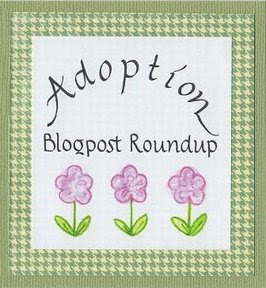On the second Saturday before Christmas, the preparations begin. My “Old Country Roses” china tea service comes down to be gently washed and dried; the linen tablecloth I inherited from my grandmother is shaken out and pressed. Ingredients for the special Advent cake are assembled into pure chocolate decadence. My children watch with eagerness, for they know what is coming: Tomorrow is “Funday with Dad!”
The next day, my family makes themselves scarce as I set the table and, at the strike of two, light the Advent wreath. The doorbell rings, and my heart skips a beat: decade-old friendships are about to renew themselves. The five of us seldom gather more than twice a year (we celebrate birthdays together each summer over Tex-Mex); however, these gatherings are a priority. Praying, talking, eating, laughing… as the chapters of our lives turn from one page to the next, we have supported one another in good times and bad, and especially in times of waiting.
Katy is first; this year she brings fruit salad. The tenth of thirteen siblings, she is the anchor of our group, the one who always shows up for any crisis to tend to practical needs – painting a nursery, tending a sick person, and remembering an anniversary. This year she and her husband have another exchange student, a boy from Germany.
Denise is next, bearing her signature baklava. Many single women would hesitate to take on her financial and emotional commitments: She has adopted a girl from Ukraine and a boy from Kazakhstan. Though she has never been pregnant, she knows the joyful, anxious waiting that accompanies a familial addition. I admire her courage, and her determination not to put her life on hold until she finds a spouse.
Lilian, a nutritionist, arrives with a savory salsa dip and pictures of the son she and her husband adopted from Guatemala. This year there are also photos the girl they will soon retrieve from another Guatemalan foster home.
Patty’s specialty is muffins. “How can I pray for you guys?” she wants to know. A veteran
auntie and accomplished flautist, Patty recently moved into a new home with her little dog, Buddy. Her solitude is a mixed blessing; the burdens she carries are real, but so is her faith. Hers is a life invested in other people.
This year we celebrate because my waiting is over. After three long years, the adoption for our foster children has been finalized, and we have the piece of paper that affirms what we have always known: We are truly a family. I pass around pictures from the baptism and talk about my studies at the seminary, which have slowed considerably since the children arrived. But that’s OK, too… as someone once told me, “Anticipation is often the greater part of pleasure.”
The Gift of WaitingThe last crumb disappears, the last drop empties from the teapot, and my friends depart for another year. Favorite teacup in hand, I settle myself to await my family’s return and think about what a blessing I have in the friendships of these four women.
In a sense, a woman’s life is about waiting: In childhood, we wait impatiently to be “all grown up,” to have a measure of freedom from parental constraints. In young adulthood, we wait for the phone to ring… for exam results… for the time we will be truly on our own. Later, we wait for first love, first homes, first children… it never ends. In the name of “liberation” we may strike out on our own and grab what we want by any means necessary. However, the results seldom satisfy, any more than a Christmas gift inspected on the sly increases our enjoyment of it when at last it is opened: The waiting is part of the gift.
When the Waiting Hurts
At times the waiting is anxious, even painful. About a year ago we hit a snag in our adoption process: Relatives of the birth parents expressed interest in adopting our children, who had been with us two years, since the baby was six months old. Outwardly I tried to remain calm; inside I was in turmoil. We were at the mercy of the state, without recourse if they decided to take these precious children from us.
The wait became even more intolerable when my sister-in-law – the only member of my husband’s family who was consistently kind and supportive of our decision to be foster parents – announced her decision to move to Arizona. The closest members of my own family live hundreds of miles away; I had never felt more alone.
Barbara’s impending departure caused something to snap inside me. For about a week my husband watched helplessly as I paced the floor day and night, bursting into tears for no apparent reason. Finally, I sat down at my computer and typed a note to “the Girls,” confessing that while I did not feel up to seeing them, I wanted them to know what I was going through.
Less than a day passed before each of them found a way to remind me of their love and prayers. One of them bravely ignored my “no visitors” directive, and came – not to rescue me, but to wait with me. Later, my sister called and convinced me to go and see my doctor: She recognized the depression symptoms, and knew what it would take to get back on track. Within a few weeks, my mood lifted.
Later, I worked up nerve to ask my mother if she had ever felt as overwhelmed with life as I was feeling just then. “Oh, when I get down I just sing hymns until I feel better,” she shrugged. Having lived with her for the first eighteen years of my life, this facile response was dissatisfying. Although maintaining our spiritual connection with God is important, I had learned that stubborn isolation and manufactured cheer does more harm than good. Like Peter sinking in the water, each of us needs a hand up at times.
In times of adversity, women are in some ways stronger than men. God gives us inner strength to wait not with passive resignation but with confidence in his goodness. He gives us intuition that helps us to nurture those who need our care, body and soul. God enables us to sense him at work even in the darkness, and gives us the ability to persevere and to intercede even when a task is thankless or an intention seems hopeless.
However, my encounter with depression taught me that there are times when these hidden, womanly spiritual gifts are meant to operate not in solitude, but within the context of community. “Bear one another’s burdens, and so fulfill the law of Christ,” St. Paul tells us (Galatians 6:2).
When Waiting HealsMy little circle of friends supports one another in our struggles: the oppression of abortion or devastation of miscarriage, the shame of childhood abuse, the dissolution of a relationship, the death of a family member, the struggles of married life. When a need surfaces, we instinctively draw a circle of love around it, tending not just to the symptoms but to the whole person.
- First we tend to bodily needs: the jar of soup at the door, a painted nursery, an hour of babysitting so Mom can nap, or sheer presence when it is needed most – be it a wedding or a wake.
- Next we support her soul – intellect and will, memories and emotions: a helpful book, a listening ear, a practical suggestion for an unresolved dilemma, conversation that moves from the trivial to the issues closest to the heart.
- Finally, we care for her spirit: a commitment to pray for specific intentions, and to ask the hard questions when her life veers off-course. As single women, we would find each other at Mass, increasing our sense of solidarity as together we drew close to the heart of God through the sacraments. Another time, a friend’s courageous question drove me to a confessional prior as I prepared to marry. Because of her, I received the best wedding gift of all: healing from the past, and a clear slate for the future.
A Gift of Spiritual Friendship
“O Come, O Come Emmanuel…” In a few weeks we will celebrate this most precious of all gifts: God as one of us. Through Mary’s faith-filled assent, the eternal Word of God fulfilled centuries of promise, coming to reconcile all of humankind with our Creator. This Advent season of joyful expectation, do you find yourself waiting physically or emotionally alone? Are you struggling to find peace, or healing from an old wound? Are you getting so caught up in the needs and wants of others that you neglect your own? Remember the Blessed Virgin who, upon hearing of the task entrusted to her, did the most natural thing in the world… She set off to share her news with a kindred spirit who would listen with faith and understanding. In good news and bad, we all need this kind of spiritual friendship. What can you do this Advent season to renew – or even initiate – one of your own?







